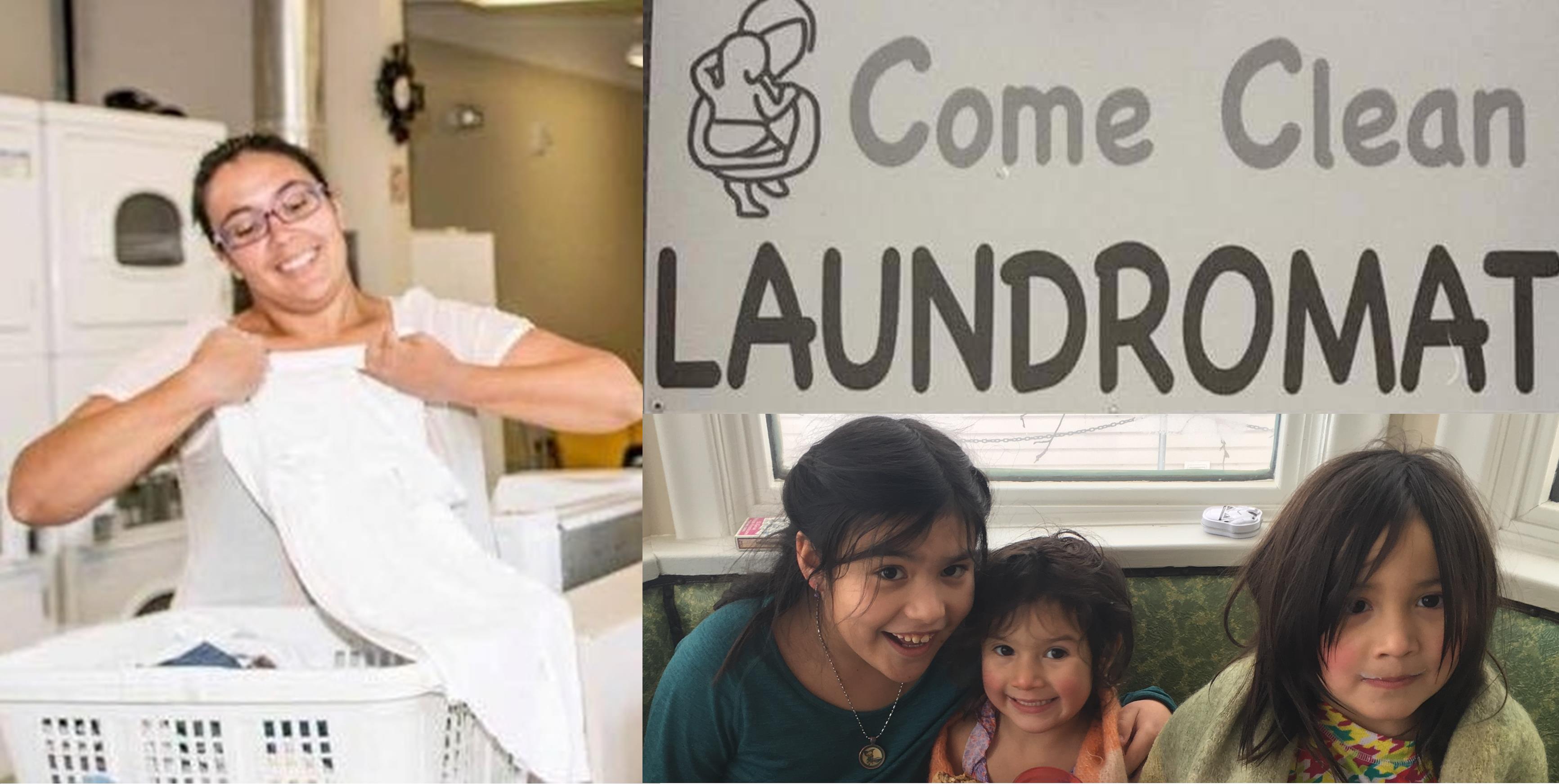Providing safe havens and a sense of community for our beneficiaries is one of our primary missions at the Rosenberg Fund for Children. We also strive to remember the work of activist families from the past, while celebrating those who are on the front lines of struggles today. The current and former members of the RFC community profiled below (and pictured with this article) exemplify these values.
One of the RFC’s strongest connections to its present beneficiary community is through a small school in Georgia. Its curriculum focuses on African history and culture and that of other marginalized people, which is often the history of resistance.
Students learn in a safe and empowering environment. Kids hear from freedom fighters from SNCC and the Malcom X Grassroots Movement, among others. In one hallway a bulletin board contains photos and materials under the heading, “Agitate, Educate, Organize.”
Even though the cost to attend this tuition-based institution is relatively low, many families who have chosen activism as a way of life and experienced repression, can’t afford it. RFC grants cover the funding gap for a number of the students from families who’ve been targeted because of their organizing against racism, police brutality, the prison system, and other related issues.
Over the past 11 years, the RFC has assisted 22 children from 10 families with tuition. One parent described the need for her children to be in schools, “that share our values for social equality and social justice.” Many of these students have been harassed and bullied in public schools for not standing for the pledge of allegiance, for defending their spiritual beliefs, or for wearing African clothing. In contrast, parents describe their children as “loving learning,” and growing “culturally, politically, and academically” at this school.
All students do a “passion project” each year on a topic of their own choosing, but which must include an explanation of how it benefits their community. The school participates in marches and rallies when it’s appropriate for children to do so. Every morning starts with an umojo circle, where they sing, drum, dance, and talk about current events. And students are taught that it’s their job to instill hope in the people who come to hear them perform at events in their city.
One parent wrote to us about how her daughter “is especially interested in social science in which she learns about political history and is able to discuss issues of power and relationships on a sophisticated level.” We’re honored to support this nurturing and progressive educational community, where students feel secure, valued, and respected.
 A radical bookstore in a laundromat. Actions with Colonialism No More, Voices for Justice and Police Accountability, and Standing Rock. Free diapers for low-income families. What brings these disparate things together? They’re all part of the life of former RFC beneficiary Robyn Pitawanakwat.
A radical bookstore in a laundromat. Actions with Colonialism No More, Voices for Justice and Police Accountability, and Standing Rock. Free diapers for low-income families. What brings these disparate things together? They’re all part of the life of former RFC beneficiary Robyn Pitawanakwat.
Robyn and her brother, who are from a First Nations family in Canada, received RFC grants for many years and attended multiple RFC events where they came to know other beneficiaries and the Meeropol family very well. Robyn’s mother, Mary Pitawanakwat, had been targeted for fighting against gender and racial discrimination perpetrated by the Canadian government. Mary also did grassroots work in the local school system, combating the racist and outdated literature that was part of the curriculum.
Mary passed away when Robyn was a teenager. Today Robyn is in her 30s, a mother herself with three young children. And she’s walking in her mother’s footsteps in many ways, consciously modeling her activism on Mary’s example.
Through actions with Colonialism No More and a recent solidarity visit to the water protectors camp at Standing Rock, Robyn is engaged with the struggle for sovereignty and rights of indigenous peoples, environmental protection, and issues regarding consent and racism. She’s also working for police accountability in her community, including advocating for a more strenuous and transparent investigation into the mysterious death of Nadine Machiskinic, an indigenous woman in Regina, Saskatchewan. At the same time, Robyn has also launched several grassroots projects to benefit people in her area. She organized a diaper bank for families in need. Many of the donated diapers were cloth and cleaning them was another financial burden for struggling families. So Robyn opened a volunteer-run laundromat that gives free service to recipients of the donated diapers while also housing a radical bookstore.
Robyn describes her activities today as advocating for “people right next to you,” whose struggles are easy to see. She notes that the grants she received for years were very helpful during the difficult time following her mother’s death. But what impacted her even more was the friendships she formed with other RFC grant recipients and RFC staff via events including Gatherings. (See related article for more about these programs.) We're proud that the RFC provided a sense of community for Robyn when she was young, and we’re inspired by how this former beneficiary is “carrying it forward” today.

